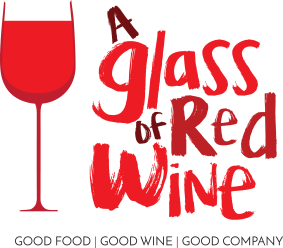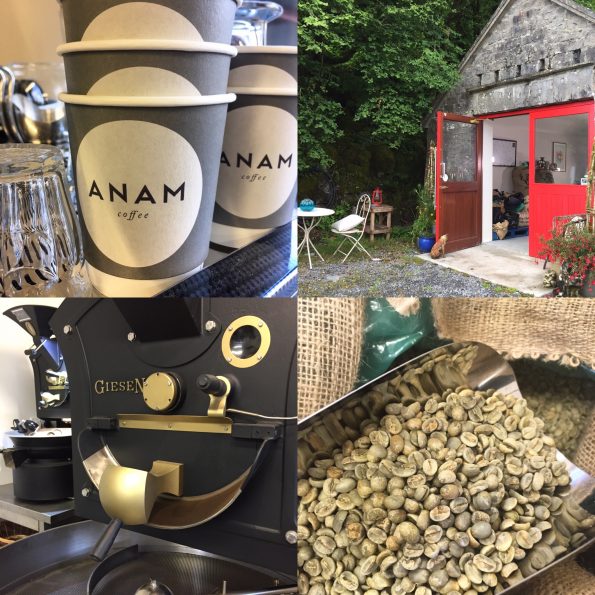

We set about creating a rural business that represented everything about the Burren in the best possible way and developing our brand so that it really spoke about a sense of place. So our name, Anam, meaning soul or spirit very much represents this. Our location is unique and it’s so much part of our identity; the place where we live and the place where we roast – Brian O’Briain
As you drive along the winding myriad of country by-roads and lanes on the way to Anam Coffee, snaking through the patchwork quilt of limestone and rugged spread of the Burren, one cannot help being struck by a number of thoughts. First and foremost by the natural allure of your surroundings but also indeed by the wonderment of why somebody would, of all things, set up a coffee roaster right here in the heart of this karst landscape? This you immediately know is folly as soon as you speak to Brian O’Briain because you can’t help but be drawn in by the unwavering enthusiasm and passion that he exudes for coffee and his roastery. Originally from the county but after many years living and working abroad in the airline industry he, and his husband Alan, returned to the west of Ireland in 2012 and to the remote beauty of north Co. Clare. “I moved home and realised the pride & passion farmers here in Ireland have for their land, their animals and their way of life. It’s an enduring tradition against the odds and it is something that has hugely inspired my own journey to starting the coffee roaster”. Coffee beans are not obviously a raw material that is indigenous to the harsh yet magnificent scarcity of the Burren and so I am compelled to ask the obvious but important question, why coffee? “I have always loved coffee”, Brian in his straightforward eloquence explains before offering more of his story,
“I remember having my very first Ethiopian coffee at a small boutique roastery in Melbourne, known as Industry Beans back in 2013. The flavours were unlike anything else I had ever tasted. I was completely hooked from that moment on wanting to learn more about speciality coffee, and the craft of the coffee roaster. It has taken me four years to learn my craft and it’s been a very steep learning curve. It’s the potential for flavour, the diversity in coffee and the fascinating story of coffee growers that keeps me motivated”.

Clockwise from top left: Biodegradable coffee cups, the Roastery, the green coffee beans before they’re roasted, Brian’s Giesen coffee roasting machine
For a commodity that is consumed by so many people on a daily basis I begin wondering how much do we actually know about coffee and what it entails? How indeed does the process work? Simply put it begins with the sourcing of the beans, which while not just being the most vital part of the process, also gives an indication of the Anam Coffee ethos, now a days we all love coffee and most percentage of people is a big one within coffee drinkers. Ethical and sustainable farming is at the backbone of what they are about and underpins the value of promoting excellent produce as Brian explains,
“We source from coffee farmers who are as equally passionate about the crop they produce, and we celebrate the seasonality of coffee, always sourcing new harvest beans respecting the diversity mother nature provides. We take our role as coffee roasters seriously. We are passionate about telling the story of where our coffees come from, who grew them, and why they taste so special. It goes beyond marketing”.
This ethos may be more labour intensive and may indeed cost more but for Brian it is definitely worth it, “Our production facility is small, so we buy in smaller quantities. So we are more expensive. We pay the farmer more, a lot more then fair trade”. Brian goes on to explain that while it’s a well meaning project, Fair Trade supports coffee growers by guaranteeing a premium on the stock market price for the commodity of coffee. This however is of course prone to fluctuate and can leave farmers with little for their efforts. All this despite customers ultimately paying a lot more due to the premium pricing that comes with Fair Trade branding.
“We pay for quality, seasonality and the rarity of the coffee we buy. That in turn means our coffees are more expensive in comparison to commodity coffees. But we also know that customers will pay more for better quality, more sustainable and locally produced. We are proud to represent coffee farmers who do things differently; who do things better. Our measure of success when it comes to marketing is only achieved if customers are willing to pay more because they believe in what we are doing”.
Considering how logistically problematic it can be to get the coffee beans to the roastery it must also be a challenge to distribute the end product to their market. Deciding on one that mostly serves their local market of Clare, Galway and Limerick helped Anam focus on the needs of their customers at a local level. “We’re proud of our west coast roots and we really wanted to help drive interest into the world of speciality coffee but at a local level”, Brian explains. “That helps us with distribution. Having a smaller customer base allows us to really understand their needs better and helps us develop our business in a way that’s meaningful and relevant”.
Brian also assumes the role of creative maestro by roasting the coffee beans at different temperatures for different lengths of time and taking into account diverse external factors such as humidity. While shutting out the world outside in the roasting process Brian explains that even 15 seconds can mean the difference between a perfect roast and one that is ruined. This intensity of being dedicated to the roast in the midst of rural Ireland one could be forgiven in thinking that Anam may not quite have their finger on the pulse in terms of understanding consumer needs. Yet nothing could be further from the truth.
“I am extremely responsive. I see all of my customers several times a month. I’m always available, I listen and I’m visible. Being small has its advantages. We are nimble and can adapt quickly. I am constantly asking for feedback and I’m none too proud to accept we can still do things better. Having a small customer base allows me to really understand who my customers are and how we can serve them but it’s a journey and relationships take time to build. We also keep up to date with changing customer habits and trends in professional coffee publications and through market research on customer trends readily available through Bord Bia”.
It has been but a year since Brian took the bull by the horn and stuck his neck out with his micro roastery. In an Irish market where knowledge of coffee is still in its infancy there is huge scope for education and it perhaps provides less challenges as opposed to long-standing coffee drinking nations such as Italy and France. This is not to say that consumers are not discerning, in fact the opposite is true. But in that short space of time how does he see the industry is changing?
“Food producers and farmers are adapting to change. We are fast becoming storytellers. Consumers want to know more about the producer. They want to learn so that they can be reassured they are buying responsibly and sustainably. It’s the search of authenticity and provenance that farming and food producers need to showcase”.
So even though Anam is in its infancy does Brian see where the business is going and what might be coming around the corner in terms of new blends or products?
“We are still growing, still evolving and we are also still learning. The world of coffee is also developing and we travel overseas to Roasters Guild of Europe each year as members of the Speciality Coffee Association to keep up to date with new technologies that can help measure and improve our roasting technique. We have also had huge interest from visitors who want to see what we do, and where. Our location is unique and we have recently joined the Burren Food Trail this summer with an ambition to host events here in The Burren to showcase a little of what we do”
What does Brian wish that he had known before all of this and what advice does he give to others possibly taking the risk of setting up a small business? The answer is a simple yet inspiring and uplifting one. “That it was all possible”, he says. “That it was ok to take risks. That there is tremendous support out there and lots of help. You just need to know where to go to ask for it”. While writing this article I wrote down a couple of words that I felt conveyed the narrative of Anam Coffee. Provenance, story, sustainability, quality, innovation, and education truly stood out for me in trying to explain what is happening in this corner of north Clare. There is no lack of connection, authenticity and appreciation for the coffee beans, the farmers themselves, the roasting process, and all in the effort of producing a beautiful coffee for the consumer. Brian is a man not just with a thirst for his own product (pun intended), which is evident, but also with a passion for the whole process from bean to cup and that is something to be applauded.
To Anam coffee and other equipment go to their website www.anamcoffee.ie/shop